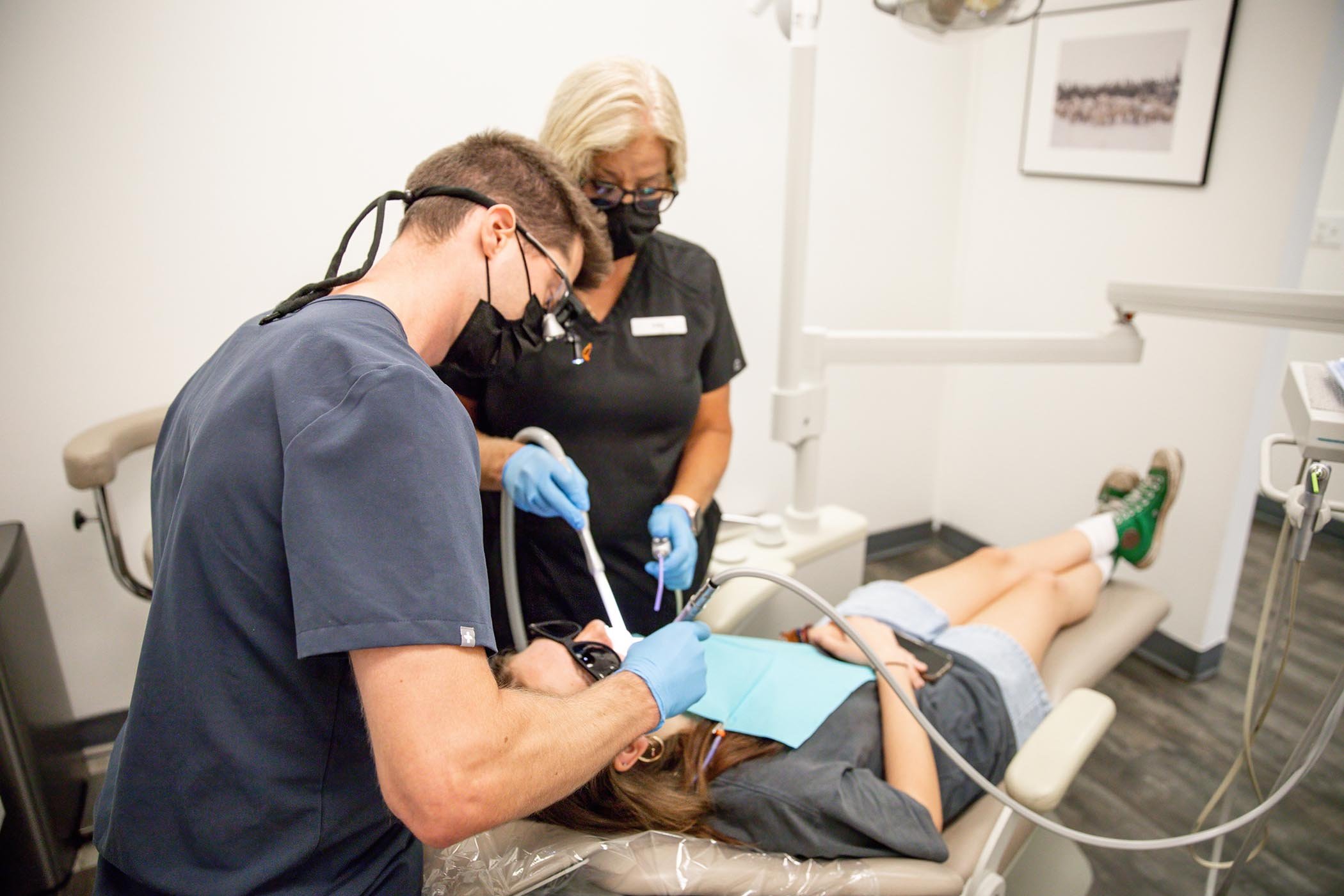
Dental Extractions
We make saying good-bye to a tooth as painless as possible.
Why remove a tooth?
Dr. Swift may recommend a tooth extraction for several reasons, some teeth may be extracted due to severe decay, while others might be affected by advanced gum disease or may be broken beyond repair. Additionally, teeth that are misaligned (like impacted teeth) or those that need to be removed for orthodontic purposes may also be candidates for extraction. Having a missing tooth can affect your dental health so to prevent future problems, Dr. Swift will discuss options for replacing the extracted tooth.
What to expect during a tooth extraction.
During the extraction, Dr. Swift will administer a local anesthetic to numb your tooth, jawbone, and surrounding gums.
You will likely feel pressure during the extraction process as the tooth is gently rocked to widen the socket for removal. While you may sense this pressure, it should not be painful, as the anesthetic blocks pain signals, although the sensation of pressure remains.
What to expect after a tooth extraction.
Continue biting on the gauze for 30–60 minutes following your procedure. Do NOT spit, rinse, suck (using a straw), smoke, drink carbonated or alcoholic beverages for at least 24 hours. Passively empty your mouth when needed.
Over the next 2 days you will most likely experience one or more of the following symptoms: Minor pain, swelling, bruising, limitation in opening or closing your mouth, pain in jaw or ear, sore throat. It is important to listen to your body and take it easy. No heavy lifting, spitting, sucking, alcohol or smoking.
Schedule an appointment
If it’s time for your dental exam and cleaning, we encourage you to contact us at 828 Dental today to set up an appointment. You can reach our Asheville, North Carolina office by filling out our online contact form or calling us at (828) 505-3410.
-
Brush gently. A gentle lukewarm saltwater rinse can be used to freshen your mouth. But again, do not spit; just let the fluid passively empty. The corners of your mouth may become cracked and dry – moisturize frequently.
-
Over-the-counter pain medication (Ibuprofen, Aleve and Tylenol) may be taken as directed on the bottle to relieve discomfort.
-
Drink plenty of fluids. Avoid carbonated and alcoholic beverages. A soft diet will be easiest; yogurt, milkshakes (no straw), soups, fish, pasta. Nothing too spicy is recommended. It is normal to have a little tenderness while chewing and difficulty opening wide.
-
Apply cold compresses to affected area at 10 intervals for the first 24 hours to minimize swelling. Any swelling that occurs usually begins to diminish within 72 hours. Call the office if there is no change.
-
Some oozing of blood is normal for the first 12-24 hours. Put a hand towel on your pillow as some drooling can occur when you are numb. If you experience excessive bleeding, apply firm pressure with 1-2 folded gauze pads or damp tea bags on the affected area for 30-60 minutes and keep your head elevated. Call the office if the bleeding does not subside.
-
Prescriptions: if you have been prescribed antibiotics, take them as directed until they are all gone, even if symptoms dissipate. Some antibiotics can interfere with the effectiveness of birth control pills or other medications. If pain medication or a mouth rinse is prescribed, take as directed.
-
Our membership plan includes a 30-day money back guarantee. You can receive a full refund for up to 30 days after purchase if no benefits of the plan have been used.
Payment for any treatment not included in the membership plan is due at the time of service. The membership plan benefits may not be combined with insurance, other offers, or discounts. Some exclusions may apply.
